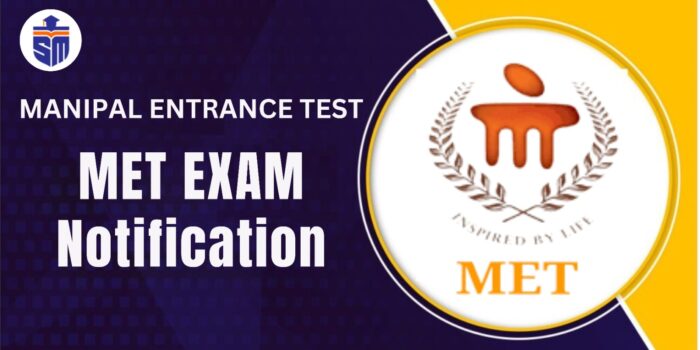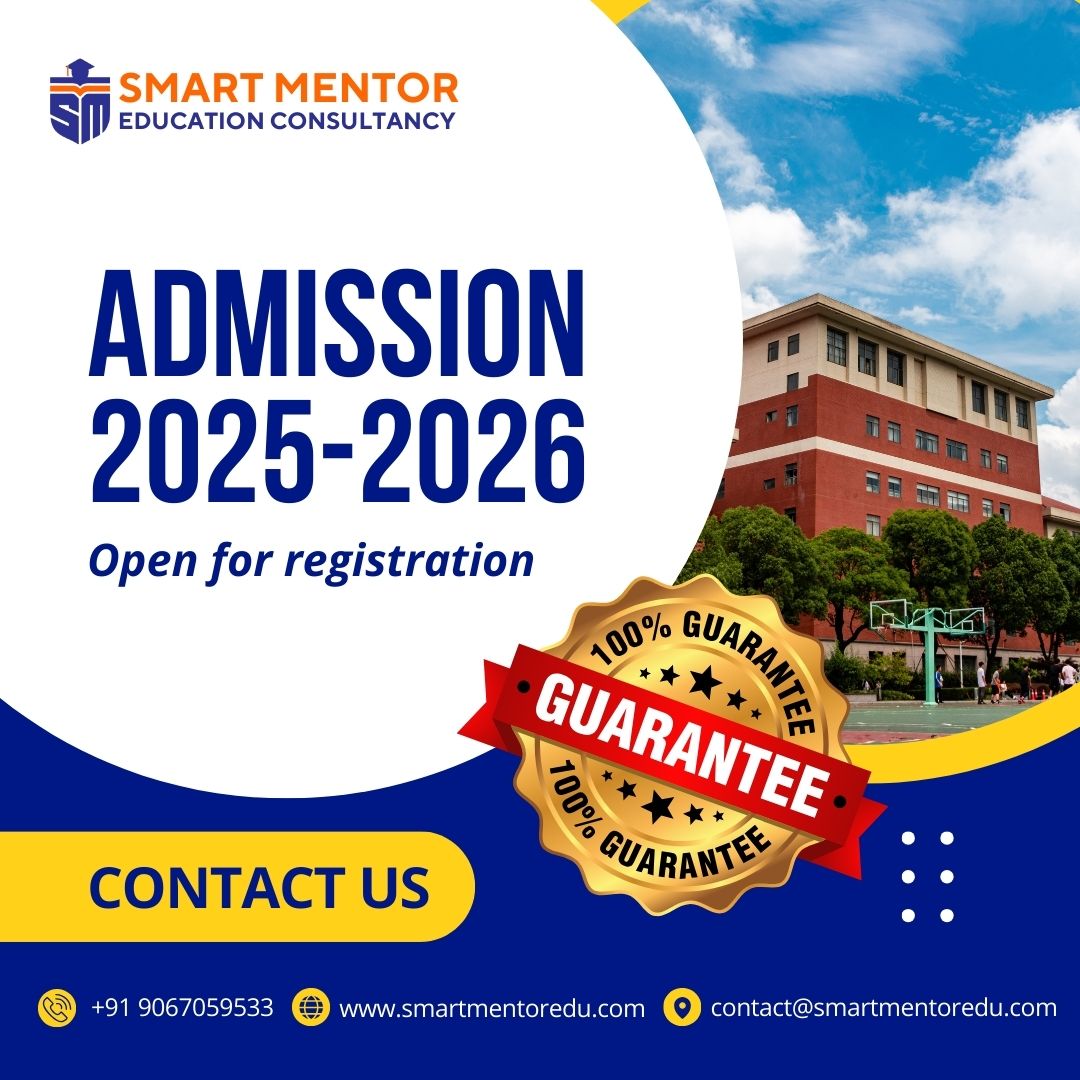
MET: Complete Guide to Manipal Entrance Test for Engineering Admissions
The Manipal Entrance Test (MET) is a national-level entrance examination conducted by Manipal Academy of Higher Education (MAHE), formerly known as Manipal University, for admission to various undergraduate engineering programs offered at its campuses. MAHE is one of India’s leading private universities, recognized for its excellence in education, state-of-the-art infrastructure, and strong industry connections. The university has consistently ranked among the top private universities in India and holds an esteemed reputation globally.
MET serves as the gateway to Manipal Institute of Technology (MIT), which has campuses in Manipal (Karnataka), Jaipur (Rajasthan), and Sikkim. With a legacy spanning over six decades, MIT has established itself as a premier engineering institution that has produced numerous successful engineers, entrepreneurs, and leaders across various industries worldwide.
MET Exam Pattern
- Mode: Computer-Based Test (CBT)
- Duration: 2 hours 30 minutes
- Total Questions: 200
- Subjects Covered:
- Physics (50 questions)
- Chemistry (50 questions)
- Mathematics (50 questions)
- English & General Aptitude (50 questions)
- Marking Scheme:
- +4 marks for each correct answer
- -1 mark for each incorrect answer (negative marking)
- 0 for unanswered questions
- Total Marks: 800
- Language: English only
- Question Type: Multiple Choice Questions (MCQs)
MET Syllabus and Important Topics
1. Physics
The Physics section covers topics from both Class 11 and 12 NCERT syllabus:
Mechanics:
- Units and Dimensions
- Kinematics
- Newton’s Laws of Motion
- Work, Energy, and Power
- Rotational Motion
- Gravitation
- Properties of Matter
- Fluid Mechanics
Heat and Thermodynamics:
- Thermal Properties of Matter
- Kinetic Theory of Gases
- Laws of Thermodynamics
- Heat Transfer
Electricity and Magnetism:
- Electrostatics
- Current Electricity
- Magnetic Effects of Current
- Electromagnetic Induction
- Alternating Current
- Electromagnetic Waves
Optics:
- Ray Optics
- Wave Optics
- Optical Instruments
Modern Physics:
- Dual Nature of Matter and Radiation
- Atoms and Nuclei
- Semiconductor Devices
- Communication Systems
2. Chemistry
The Chemistry section is divided into Physical, Inorganic, and Organic Chemistry:
Physical Chemistry:
- Atomic Structure
- Chemical Bonding
- States of Matter
- Thermodynamics
- Chemical Equilibrium
- Redox Reactions
- Electrochemistry
- Chemical Kinetics
- Surface Chemistry
- Solutions
Inorganic Chemistry:
- Periodic Table and Periodic Properties
- s-block Elements
- p-block Elements
- d-block and f-block Elements
- Coordination Compounds
- Environmental Chemistry
- Metallurgy
Organic Chemistry:
- Basic Concepts
- Hydrocarbons
- Haloalkanes and Haloarenes
- Alcohols, Phenols, and Ethers
- Aldehydes, Ketones, and Carboxylic Acids
- Amines and Diazonium Salts
- Biomolecules, Polymers, and Chemistry in Everyday Life
3. Mathematics
The Mathematics section covers:
Algebra:
- Complex Numbers
- Quadratic Equations
- Matrices and Determinants
- Sequences and Series
- Permutations and Combinations
- Binomial Theorem
- Mathematical Induction
- Sets, Relations, and Functions
Calculus:
- Limits and Continuity
- Differentiation
- Applications of Derivatives
- Integration
- Definite Integrals
- Differential Equations
- Applications of Integrals
Coordinate Geometry:
- Straight Lines
- Circles
- Conic Sections (Parabola, Ellipse, Hyperbola)
- Three-Dimensional Geometry
Trigonometry:
- Trigonometric Functions and Identities
- Trigonometric Equations
- Inverse Trigonometric Functions
- Heights and Distances
Vector Algebra:
- Vectors and Their Properties
- Scalar and Vector Products
Statistics and Probability:
- Measures of Central Tendency and Dispersion
- Probability and Probability Distributions
- Random Variables
- Bernoulli Trials and Binomial Distribution
4. English & General Aptitude
This section tests:
English:
- Reading Comprehension
- Vocabulary
- Grammar
- Sentence Completion
- Error Correction
General Aptitude:
- Logical Reasoning
- Analytical Reasoning
- Data Interpretation
- Spatial Ability
- Critical Thinking
MET Preparation Strategy
1. Recommended Study Materials & Books
Physics:
- NCERT Physics Class 11 & 12 (fundamental concepts)
- Concepts of Physics by H.C. Verma (problem-solving)
- Problems in General Physics by I.E. Irodov (advanced problems)
- Understanding Physics series by D.C. Pandey (comprehensive coverage)
Chemistry:
- NCERT Chemistry Class 11 & 12 (essential for all sections)
- Physical Chemistry by O.P. Tandon
- Organic Chemistry by Morrison & Boyd (for mechanisms and concepts)
- Concise Inorganic Chemistry by J.D. Lee
Mathematics:
- NCERT Mathematics Class 11 & 12 (for basic concepts)
- Higher Algebra by Hall & Knight (for algebra)
- Coordinate Geometry by S.L. Loney
- Problems in Calculus by I.A. Maron
- Complete Mathematics for JEE Main by TMH Publications
English & General Aptitude:
- Word Power Made Easy by Norman Lewis (vocabulary)
- High School English Grammar by Wren & Martin
- Verbal & Non-Verbal Reasoning by R.S. Aggarwal
- Barron’s Guide to Critical Thinking
2. Effective Time Management
- 6-Month Preparation Plan:
- First 2 months: Cover the entire syllabus with focus on basic concepts
- Next 2 months: Practice topic-wise problems and strengthen weak areas
- Last 2 months: Take regular mock tests and revise important concepts
- Daily Schedule:
- 2 hours for Physics
- 2 hours for Chemistry
- 2 hours for Mathematics
- 1 hour for English & General Aptitude
- 1 hour for revision and practice tests
3. Practice Tests and Previous Years’ Papers
- Solve at least the last 10 years’ MET question papers
- Take regular full-length mock tests under timed conditions
- Analyze performance after each test to identify weak areas
- Join online test series specifically designed for MET
- Practice chapter-wise and subject-wise tests
4. Subject-wise Preparation Tips
Physics:
- Focus on understanding concepts rather than memorization
- Create a formula sheet for quick revision
- Practice numerical problems extensively
- Pay special attention to mechanics, electricity, and modern physics
- Solve MCQs regularly to improve speed and accuracy
Chemistry:
- Create short notes for reactions, mechanisms, and named reactions
- Memorize important formulas and equations
- Practice numerical problems in physical chemistry
- Create flashcards for organic chemistry reactions
- Focus on NCERT for inorganic chemistry
Mathematics:
- Practice a variety of problems for each concept
- Learn shortcuts and tricks for quick calculations
- Focus on calculus, coordinate geometry, and algebra
- Develop speed and accuracy through regular timed practice
- Maintain a separate notebook for formulas and properties
English & General Aptitude:
- Read English newspapers and magazines regularly
- Learn new words and their usage daily
- Practice reading comprehension passages
- Solve logical and analytical reasoning problems regularly
- Develop quick calculation techniques for data interpretation
5. Key Advantages of MET
- Well-structured computer-based exam format
- Questions based on NCERT syllabus making it accessible for all board students
- Transparent admission process
- Multiple attempts possible (usually conducted in multiple phases)
- Access to world-class engineering education at Manipal campuses
Manipal Institute of Technology: Campuses and Programs
MIT Manipal (Karnataka)
The flagship campus of MIT offers a wide range of engineering programs in a sprawling campus with state-of-the-art facilities, including:
- Computer Science and Engineering
- Electronics and Communication Engineering
- Mechanical Engineering
- Electrical and Electronics Engineering
- Civil Engineering
- Chemical Engineering
- Biotechnology
- Aerospace Engineering
- Information Technology
- Artificial Intelligence and Machine Learning
- Data Science and Engineering
- Computer and Communication Engineering
- Mechatronics
- Industrial and Production Engineering
MIT Jaipur (Rajasthan)
This campus offers various engineering programs with a focus on contemporary fields:
- Computer Science and Engineering
- Electronics and Communication Engineering
- Mechanical Engineering
- Civil Engineering
- Electrical and Electronics Engineering
- Computer and Communication Engineering
- Artificial Intelligence and Data Science
MIT Sikkim
The newest campus offers select engineering programs:
- Computer Science and Engineering
- Electronics and Communication Engineering
- Mechanical Engineering
- Civil Engineering
Special Features of MIT Manipal
- International Collaborations: Partnerships with universities worldwide for student exchange programs
- Innovation Center: Advanced labs and research facilities
- Industry Connections: Strong relationships with leading companies for internships and placements
- Excellent Placements: Consistent record of placements in top companies with attractive packages
- Student Projects: Opportunities to work on real-world engineering challenges
- Technical Clubs and Societies: Active student communities focused on various technical domains
- Entrepreneurship Cell: Support for student startups and entrepreneurial ventures
MET Admission Process
- Online Registration: Register on the official MAHE website
- Application Submission: Complete the application form with necessary details
- MET Exam: Appear for the computer-based test on the allocated date and slot
- Results Declaration: Check results on the official website
- Counseling Process:
- Pay counseling fee and register for counseling
- Choose preferred courses and campuses based on MET rank
- Seat allotment according to merit and preference
- Confirm admission by paying the required fees within the stipulated time
Alternative Admission Pathways to MIT Manipal
Apart from MET, Manipal offers alternative pathways for admission:
- JEE Main Score: Direct admission based on JEE Main percentile (usually 85th percentile and above)
- SAT Score: International students can apply with SAT scores
- International Admissions: Separate process for NRI and foreign students
- Lateral Entry: Direct admission to second year for diploma holders
Tips for Exam Day
- Reach the exam center at least 45 minutes before the scheduled time
- Carry your admit card and valid ID proof
- Read all instructions carefully before starting the exam
- Remember there is negative marking, so avoid random guessing
- Manage time effectively – allocate approximately 45 seconds per question
- Start with your strongest sections to build confidence
- Don’t spend too much time on difficult questions; mark them for review and return later
- In the last 10 minutes, focus on reviewing marked questions
Conclusion
The Manipal Entrance Test (MET) offers a golden opportunity to secure admission to one of India’s most prestigious private engineering institutions. With its world-class infrastructure, excellent faculty, strong industry connections, and vibrant campus life, MIT Manipal provides a holistic educational experience that prepares students for successful careers in engineering and technology.
Interested in Direct Admission in India?
Get Direct Admission in India’s Top Universities / College.





